Based on an award-winning crime novel by Susanna Jones, ‘Earthquake Bird‘ follows a tale that works between the lines of a typical psycho-thriller crime drama and a hefty character-driven storyline. The first half of the film mostly reckons upon a linear story that, for the most part, drives you toward the mystery of a murder. However, the second half brings in some unlikely plot twists that are mostly driven by flashbacks.
Since the film tries to simultaneously juggle two different themes — one focuses on the perspective of the lead, while the other sheds light on the underlying mystery — as a viewer, you might, at times, lose track of what’s going on. This explainer will help you get a better understanding of the jagged yet inventive storyline of the film. SPOILER AHEAD!
Plot Summary
‘Earthquake Bird’ centers Lucy Fly (Alicia Vikander), who works as a translator in Tokyo, and though she usually feels distant from her surroundings, she prefers to stay far away from her family. One day, the Japanese police approach her at her office and take her in to investigate the murder of her friend, Lily. This is when she begins to look back at all the events that rippled into her devastating present.
Somewhere during her lonely, monotonous existence in Tokyo, she ends up running into a charming photographer, Teiji, who shows some interest in clicking pictures of her. Soon, the two of them start spending a lot of time together, and to fulfill her own longing for acceptance, Lucy gets really attached to him. Later, one of Lucy’s old friends, Lily, shows up in Japan. Though a little reluctant about it at first, Lucy accepts her company, and the two form a rather unlikely friendship. Lucy’s obsession with Teiji starts to drive her insane when Lily and Teiji start getting closer to each other. With this, a tense love triangle sets in, which not only fuels Lucy’s jealousy but also forces her to face the demons of her grim past.
Lucy Fly: “Death Follows Me”
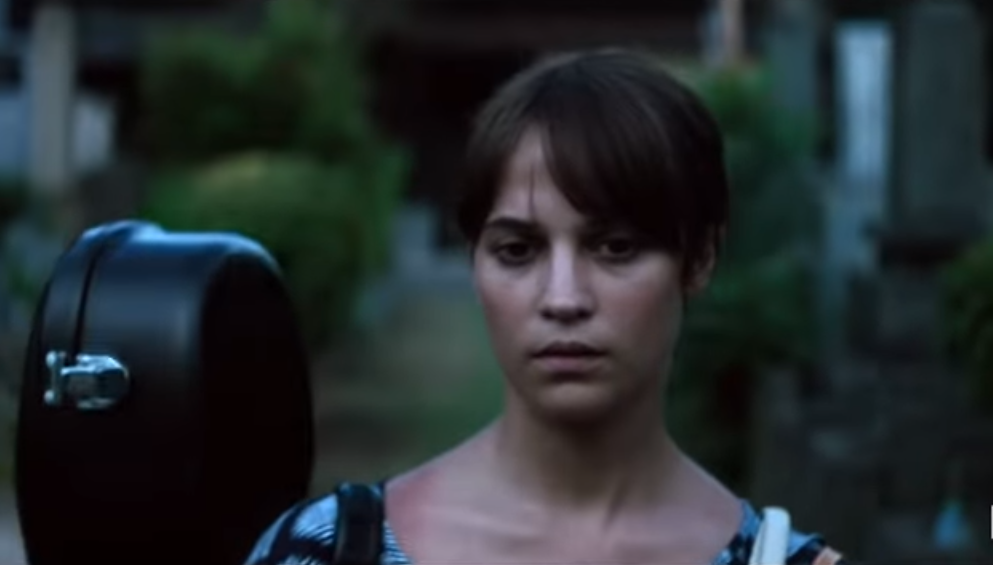
In the first few minutes of the film, a Japanese lady gives Lucy a small tree as a present for her birthday. One look at this tree reminds Lucy of a memory from her past. At this moment, the film presents a mysterious abutting shot of a tree and only further explores this memory much later. After being interrogated by the police for a very long time, an old cop finally starts warming up to her and asks her if she’s guilty about something from her past. This is when she starts recalling an event that is the “deeper source” of her guilt towards the murder of her friend.
She tells him how she would often climb a tree as a child and would then just sit there and read a book. But one day, her brothers showed up there along with other Boy Scouts and started throwing stones and pine cones at her. This is when her brother, Marcus, picked up a sharper stone, but before he could swing it at her, she jumped off the tree. With this, Marcus toppled over and ended up piercing his own head with a sharp nail, budging out of a plank on the ground. This is where her skewed sense of lifelong guilt was initiated.
Later, when Teiji asks her about the time when she first had sex, she recounts the incident when she was 14 and had gone over to a friend’s place. Since her friend wasn’t at home, her Dad had led Lucy to his own distillery, and the two of them got drunk. Without even knowing it, she ended up having sex with her friend’s Dad, and in the weeks that followed, she got nauseous. Her friend’s Dad was obviously not too happy about it and he later ended up killing himself. To her dismay, she even realized that the baby was not real, and she was only being paranoid about the whole thing. After this event, Lucy started believing that “death follows her.”
Her self-worth breaks down even further when Yamamoto-San, the lady who had gifted her the tree on her birthday, slips on the stairs of her home and ends up busting her head on her way down. After Yamamoto’s death, Lucy again links the incident with her past, and unknowingly, she assures herself that anyone who gets too close to her will eventually meet the same fate. What follows is her struggle to be accepted, which is contradicted by her faulty belief of being someone who is a curse.
The Ending: Is Lucy a Murderer or a Victim?
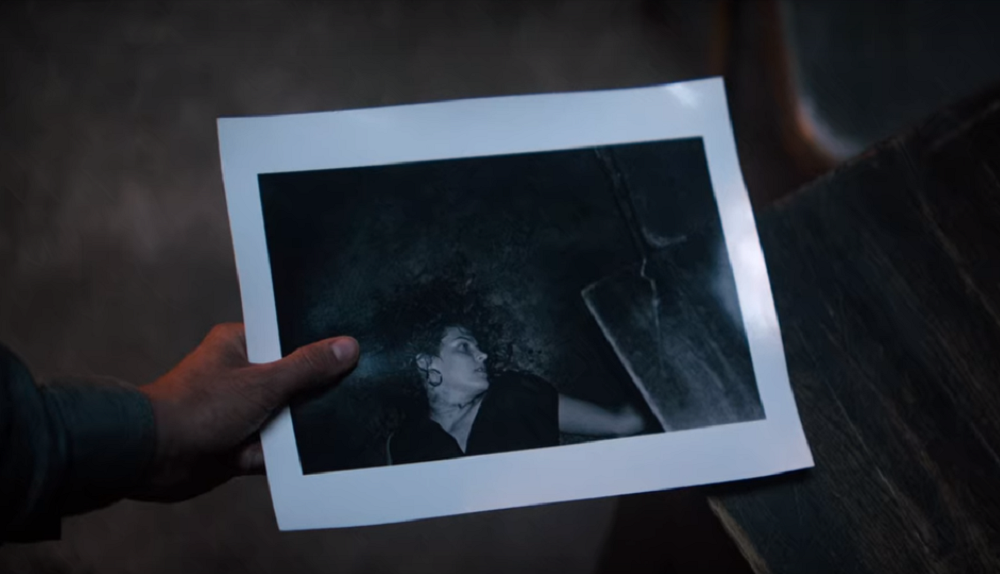
With an 80s Tokyo in the background, the film starts off by revealing a poster, which reports that Lily is missing. Soon after this, the body parts of a girl are recovered, and Lucy finds herself at a police station where she is interrogated by two cops; one is a calm old man, and the other one is a stern, impatient young officer. Lucy tries to maintain a frigid attitude and boldly tells them that she knows nothing about Lily and Teiji’s disappearance. But after she is forced to hark back to all the toxic events that led to Lily’s murder, her sense of guilt resurfaces, and she confesses to the cops that she did indeed kill her. But with a twist of events, it turns out that the DNA of the previously recovered body does not match Lily’s.
With this, Lucy finds herself in the interrogation room again, and the old mature cop starts empathizing with her. He looks right through her and realizes that, though she may not have killed Lily, she holds herself guilty for Lily’s death. After being released from police custody, she breaks into Teiji’s home and starts going through all of his pictures. This is when she runs into a folder where she finds several pictures of Lily, and in one of them, Lily lies motionless on the ground. Clearly dead.
The film makes you believe that, out of jealousy, Lucy might have killed Lily, but it was actually Teiji who killed her. Teiji is more like a psychotic predator who lures vulnerable women and then kills them. Even his so-called ex-girlfriend, Sasha, was probably one of his victims since he had a folder full of her pictures as well. There is one incident where he even gets really mad at Lucy for looking at his old pictures.
At this point in time, as a viewer, you safely assume that Teiji probably killed Lily and then fled away to avoid being questioned in any way. But soon after the murder, he shows up at Lucy’s place and asks her to run away with him. Being the person that he is, he clearly just wants to lure Lucy with his charm again and maybe even kill her later. But Lucy, who was blinded by her own insecurities all this while, realizes who he truly is and decides to end everything. Teiji gets an outburst of rage, and he starts choking her. Out of self-defense, Lucy smashes a fishbowl on his end, and he dies almost instantly. To an extent, even this event makes her believe that Teiji’s death was her fault. Still, she is actually innocent and is only subconsciously led into believing that everything is happening because of her.
Why Does Lucy Lie to the Cops?
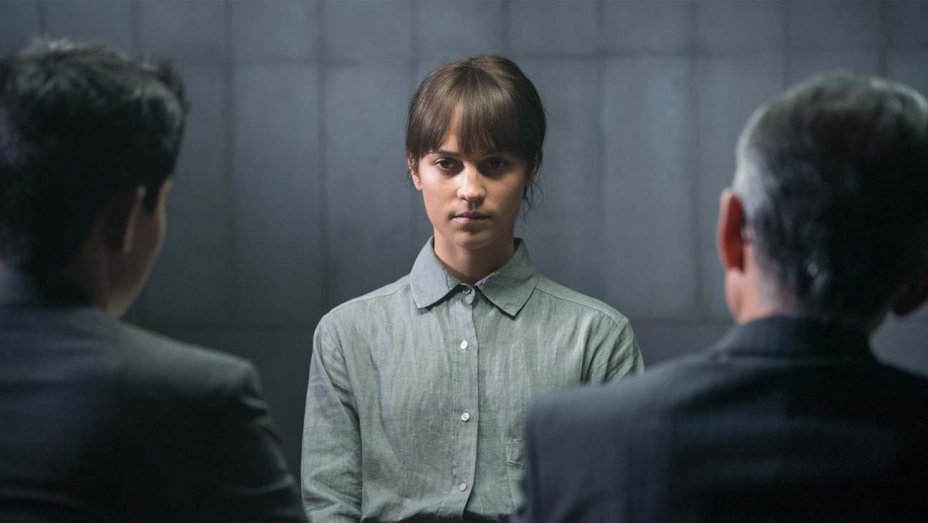
When confronted by the cops, she lies about many things. At first, she tells them that she knows nothing about Lily and Teiji’s whereabouts. Then, she even lies about murdering Lily. Now, as viewers, we must not forget that the film portrays everything from the protagonist’s perspective.
According to Lucy, after being forced to believe that “Death follows her,” she blames herself for the fact that Lily, in one way or the other, ended up becoming a victim of Teiji’s ulterior motives. In the last few scenes of the film, she even recalls an incident where Lily had approached her to apologize, but she just disbanded all her pleas and asked her to go away. So when she tells the cops that she killed Lily, she actually believes that she did.
Was Lucy Hallucinating?
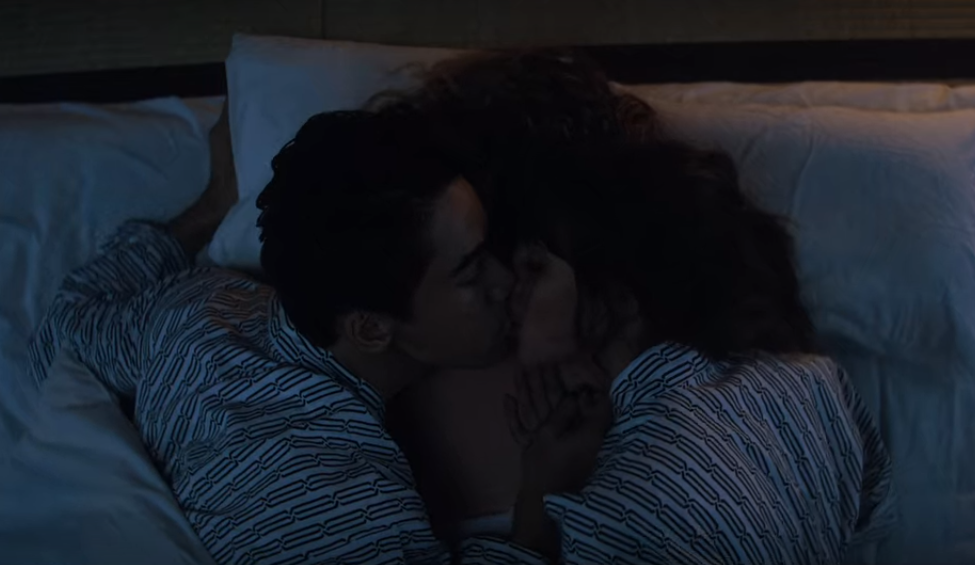
The film follows a very uneven storyline, and in the grand scheme of things, it often presents itself as riddle where you are expected to put together the events in its timeline. In the second half of the film, there are several moments where Lucy begins to hallucinate that Lily and Teiji are still with her. These parts of the storyline take place much after the murder and reflect on how, because of her PTSD and underlying guilt, she has become a schizophreniac.
There’s also this one scene where she glares at a scar on her neck in the mirror and then goes out of her room to sleep with Lily and Teiji. She then ends up kissing Lily and even Teiji joins ends up joining them. But as soon as Teiji and Lily start making out, she wakes up from this horrifying dream. At first, it seems like this scene is trying to convey her jealousy towards Lily and Teiji’s relationship, but it actually portrays how she regrets not being able to save Lily from Teiji. Later, she also ends up reliving the moment where Lily had approached her to apologize, but this time around, as she tries to stop her from going back to Teiji, Lily just disappears around the corner of a street. This scene represents how she’s still living with the regret of not stopping her that day.
Towards the end, Lucy finally comes in terms with everything when another one of her Japanese friends tells her that, before Yamamoto had slipped from the stairs, she had actually waxed them. She had also tried to warn her about it once but somehow ended up ignoring it. The lady makes Lucy realize that she is not at all responsible for Yamamoto’s death after all. To an extent, she also begins to grasp the reality of things as she understands the real cause of the deaths of all the people she associated herself with. In the end, Lucy finds herself in somewhat of a middle ground where she is neither too guilty nor too innocent; which is still better than her noxious notions of self-blame.
Read More: Earthquake Bird Review

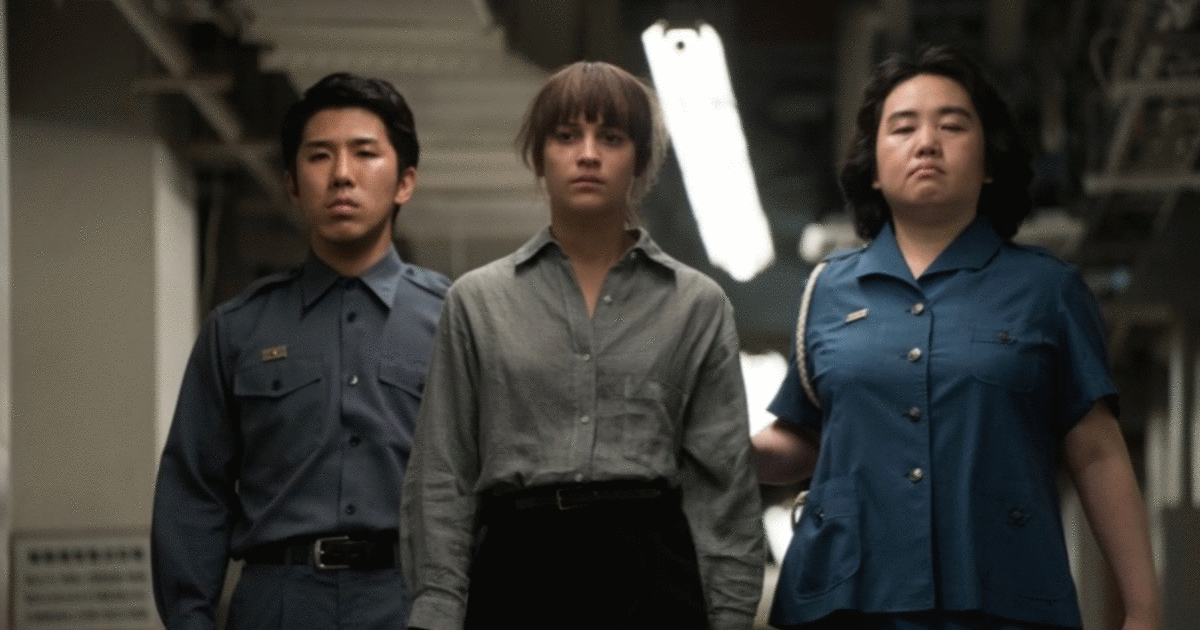
You must be logged in to post a comment.